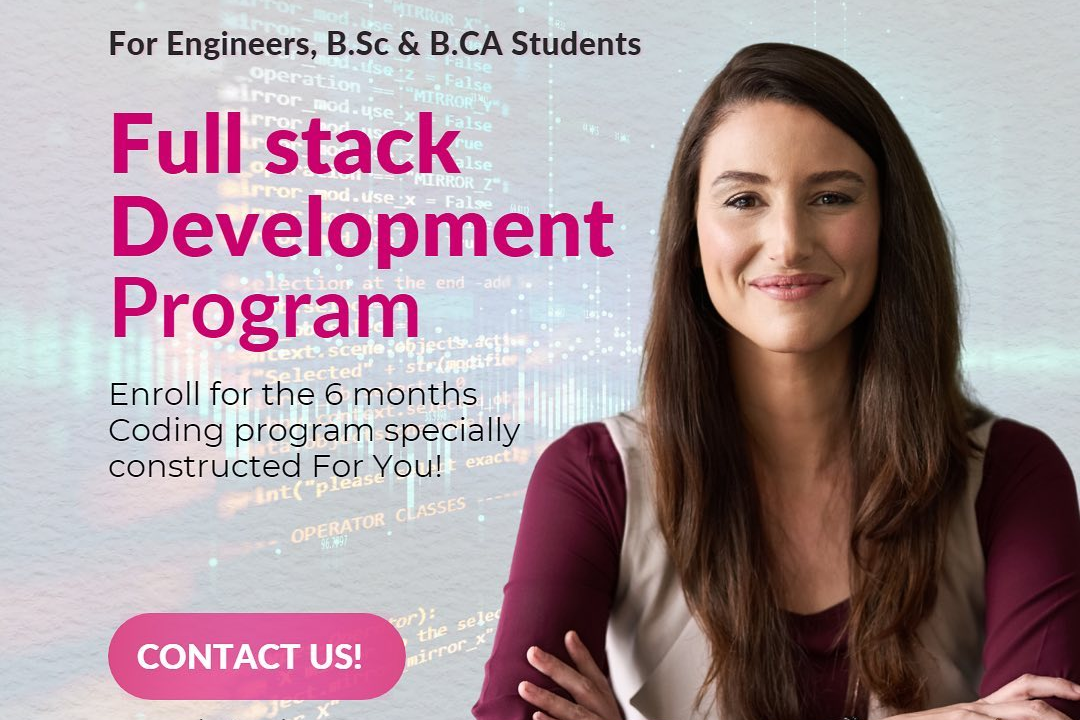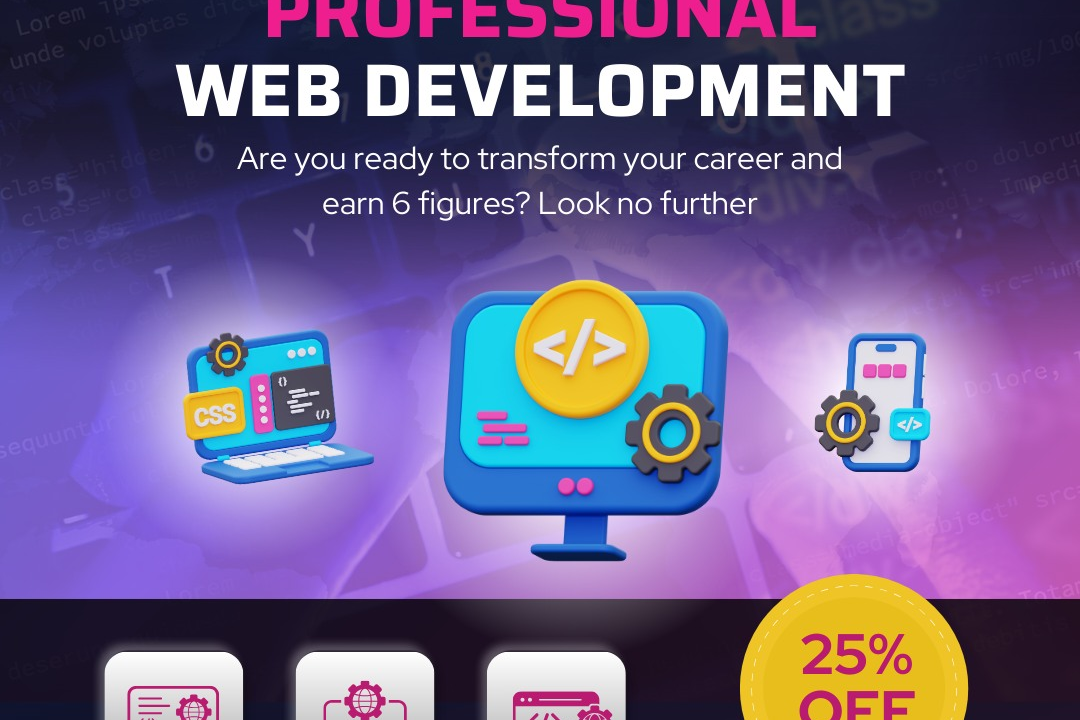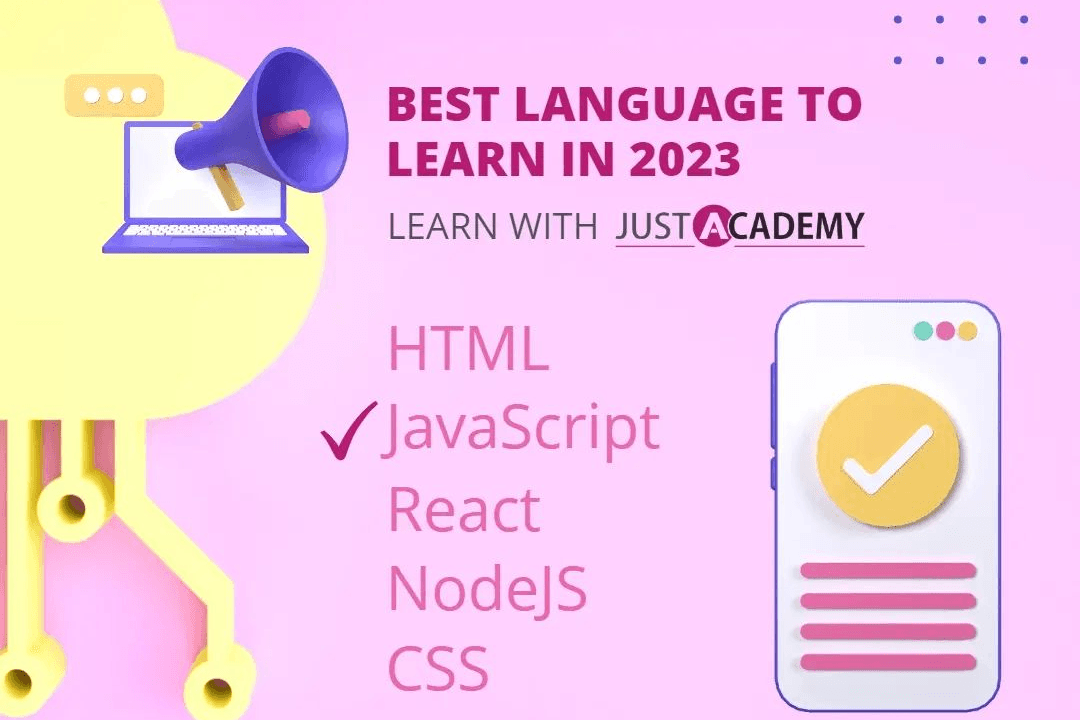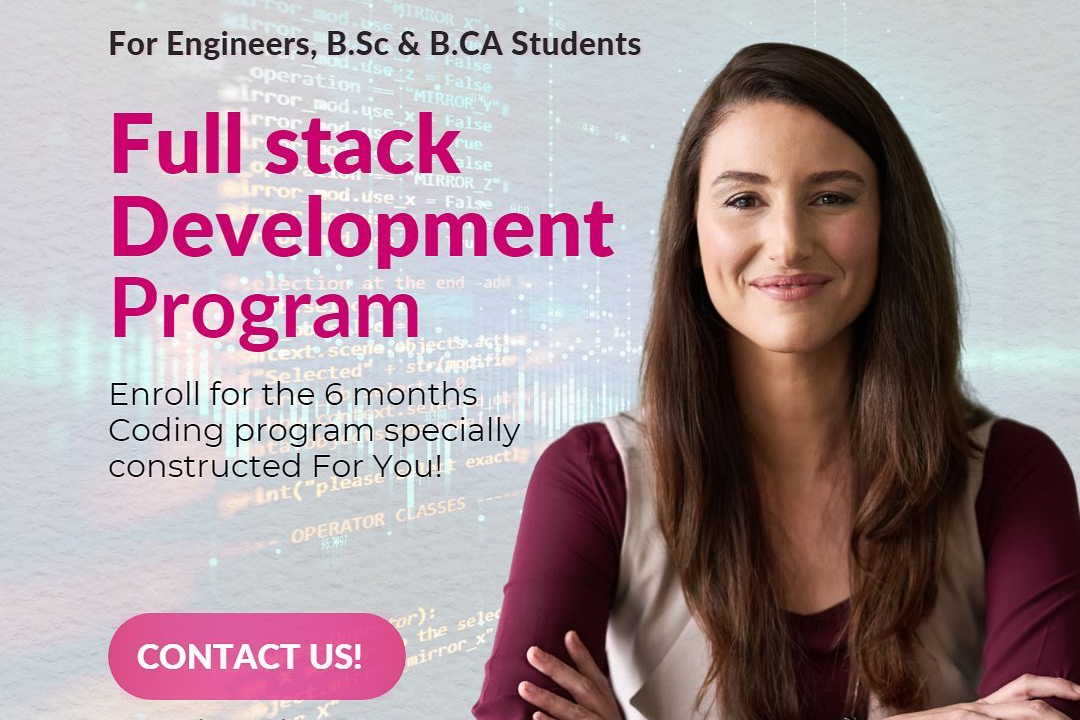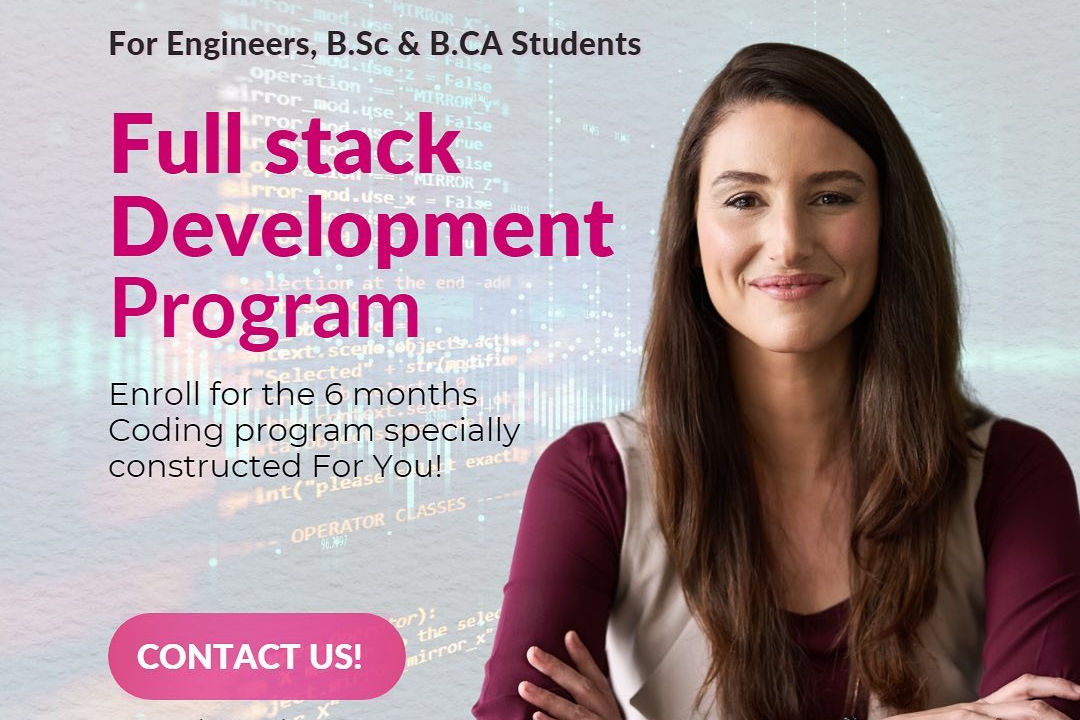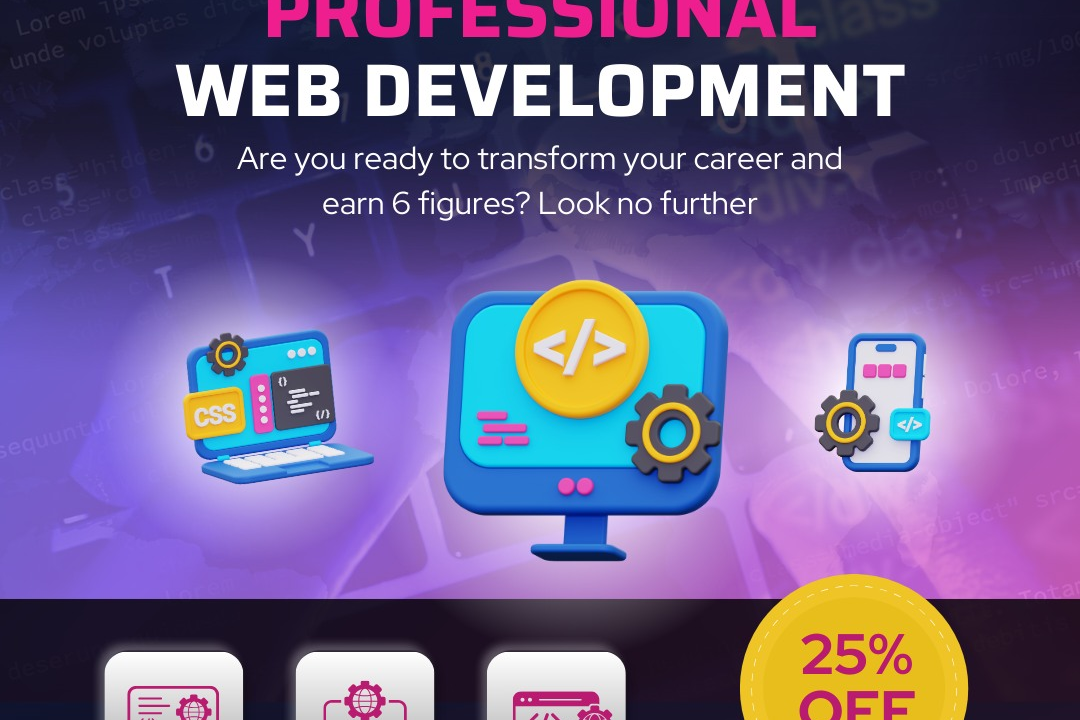Basic Php Program Running In Xampp
A basic PHP program running on XAMPP involves setting up a local development environment where devel
Basic Php Program Running In Xampp
Running a basic PHP program in XAMPP is incredibly useful for developers and learners alike, as it provides a straightforward way to set up a local server environment. XAMPP combines Apache, PHP, and MySQL, allowing users to easily create and test dynamic web applications on their own machines without needing to deploy code to a live server. This setup facilitates rapid development and debugging, enabling learners to experiment with PHP code in real-time while gaining hands-on experience with a popular web technology. With XAMPP, users can build, run, and manage their PHP projects effectively, making it an essential tool for anyone looking to hone their skills in web development.
To Download Our Brochure: https://www.justacademy.co/download-brochure-for-free
Message us for more information: +91 9987184296
Running a basic PHP program in XAMPP is incredibly useful for developers and learners alike, as it provides a straightforward way to set up a local server environment. XAMPP combines Apache, PHP, and MySQL, allowing users to easily create and test dynamic web applications on their own machines without needing to deploy code to a live server. This setup facilitates rapid development and debugging, enabling learners to experiment with PHP code in real time while gaining hands on experience with a popular web technology. With XAMPP, users can build, run, and manage their PHP projects effectively, making it an essential tool for anyone looking to hone their skills in web development.
Course Overview
The “Basic PHP Program Running in XAMPP” course offers an introductory exploration into PHP programming in a local server environment. Participants will learn how to install and configure XAMPP, a popular software package that combines Apache, PHP, and MySQL, to create a fully functional web development setup. Through hands-on projects, students will gain practical experience writing, executing, and debugging PHP scripts while understanding the fundamentals of server-side programming. By the end of the course, learners will be equipped with the essential skills to develop dynamic web applications and confidently work in PHP using XAMPP.
Course Description
The “Basic PHP Program Running in XAMPP” course is designed for beginners to learn the fundamentals of PHP programming within a local server environment. Participants will install and configure XAMPP, enabling them to run PHP scripts seamlessly alongside an Apache server. The course covers essential topics such as creating, executing, and debugging simple PHP programs while providing hands-on experience with real-time projects. By the conclusion, learners will possess a solid foundation in PHP, empowering them to develop dynamic web applications and enhancing their skills as aspiring web developers.
Key Features
1 - Comprehensive Tool Coverage: Provides hands-on training with a range of industry-standard testing tools, including Selenium, JIRA, LoadRunner, and TestRail.
2) Practical Exercises: Features real-world exercises and case studies to apply tools in various testing scenarios.
3) Interactive Learning: Includes interactive sessions with industry experts for personalized feedback and guidance.
4) Detailed Tutorials: Offers extensive tutorials and documentation on tool functionalities and best practices.
5) Advanced Techniques: Covers both fundamental and advanced techniques for using testing tools effectively.
6) Data Visualization: Integrates tools for visualizing test metrics and results, enhancing data interpretation and decision-making.
7) Tool Integration: Teaches how to integrate testing tools into the software development lifecycle for streamlined workflows.
8) Project-Based Learning: Focuses on project-based learning to build practical skills and create a portfolio of completed tasks.
9) Career Support: Provides resources and support for applying learned skills to real-world job scenarios, including resume building and interview preparation.
10) Up-to-Date Content: Ensures that course materials reflect the latest industry standards and tool updates.
Benefits of taking our course
Functional Tools
1 - XAMPP
XAMPP is an open source, cross platform web server solution that provides a convenient way for developers to run PHP applications locally. It includes Apache HTTP Server, MySQL, PHP, and Perl in a single package, making it easy to set up a development environment. The user friendly control panel allows students to manage running services seamlessly. This software is ideal for beginners looking to test their PHP scripts in a controlled environment without needing extensive configuration knowledge. The ability to simulate a live server on a local machine ensures that students can develop and troubleshoot in real time.
2) Notepad++ or VSCode
These text editors are popular choices among developers for writing PHP code due to their rich features and customizable interfaces. Notepad++ is lightweight and supports syntax highlighting, which helps students easily identify code structures. Visual Studio Code (VSCode), on the other hand, offers advanced features such as IntelliSense, code debugging, and an integrated terminal. Both editors provide a robust platform for students to write, edit, and manage their PHP files effectively, enhancing productivity and focusing on code quality.
3) Browser for Testing
A web browser such as Google Chrome, Firefox, or Safari is essential for testing PHP applications. These browsers interpret and display the output of PHP scripts executed by the server. Students utilize the browser's developer tools to inspect elements, view console logs, and debug JavaScript alongside PHP outputs. Understanding how to navigate and utilize various browser tools for debugging is a critical skill for PHP developers, as it allows them to identify and resolve issues more efficiently.
4) phpMyAdmin
For managing MySQL databases, phpMyAdmin provides a web based interface that simplifies database operations such as creating, editing, and deleting databases and tables. It is included in the XAMPP package, making it accessible to students right from their local setup. Through phpMyAdmin, students can execute SQL queries, manage user privileges, and import or export database data easily. This tool is essential for back end development, as it allows students to interact with databases that power their PHP applications with minimal effort.
5) Command Line Interface (CLI)
The Command Line Interface, or terminal, is an integral tool for running PHP scripts directly and managing the development environment. Students learn to navigate directories, run PHP files via the command line, and use version control systems like Git. CLI is not only essential for executing commands efficiently but also for reinforcing fundamental concepts of file management and deployment. Familiarity with CLI enhances students’ ability to troubleshoot issues and facilitates a deeper understanding of how PHP operates behind the scenes.
6) Version Control Systems (e.g., Git)
Integrating a version control system like Git into the development workflow is crucial for tracking changes and collaborating on projects. Students learn to create repositories, commit changes, and manage branches. Git not only protects the integrity of their code but also allows them to collaborate effectively in teams. Understanding version control streamlines the development process and is an indispensable skill in modern software development practices, preparing students for real world PHP programming environments.
Certainly! Here are additional tools and concepts that are useful for PHP development:
7) Frameworks (e.g., Laravel, Symfony)
PHP frameworks such as Laravel and Symfony provide a structured way to build applications. These frameworks come with built in features that streamline development processes, such as routing, templating, and authentication. Students can benefit from learning a framework, as it promotes best practices and allows for rapid application development. Understanding frameworks will enable them to build scalable applications efficiently, reducing repetitive tasks and enhancing code maintainability.
8) Composer
Composer is a dependency management tool for PHP that allows developers to manage and install libraries and packages easily. It facilitates integrating third party libraries into their projects, enabling students to leverage existing code to enhance their applications. By learning to use Composer, students understand the importance of dependency management and how it contributes to clean, organized code. This skill is essential for working on larger projects that require more complex architecture.
9) Integrated Development Environments (IDEs)
While Notepad++ and VSCode are excellent text editors, Integrated Development Environments (IDEs) like PhpStorm offer a more robust development experience. IDEs provide advanced features such as code completion, real time error checking, and integrated debugging tools. Students may find that using an IDE can significantly speed up their coding process, making it easier to focus on logic rather than syntax. Learning to navigate an IDE prepares students for industry standards where such tools are commonly used.
10) Debugging Tools (e.g., Xdebug)
Xdebug is a powerful debugging tool for PHP that provides features like stack traces, code coverage analysis, and debugging capabilities. Students can use Xdebug to gain insight into their application’s performance and troubleshoot issues effectively. Understanding how to set up and utilize debugging tools is crucial for identifying bugs and optimizing applications, enhancing the overall learning experience in PHP programming.
11 - Unit Testing Frameworks (e.g., PHPUnit)
Implementing unit tests is vital for maintaining code quality and ensuring functionality. PHPUnit is the de facto testing framework for PHP, allowing developers to write and run tests on their codebase. Students who learn to write unit tests develop better coding practices by ensuring their code works as expected before deployment. This knowledge not only improves their programming skills but also prepares them for professional environments where testing is a standard procedure.
12) APIs and RESTful Services
Understanding how to create and consume APIs is a critical skill in modern web development. Students should learn how to build RESTful services using PHP, which allows applications to communicate and interact with external systems. This knowledge is essential for developing applications that require integration with other platforms, enabling them to expand their projects' functionality. Learning about API authentication methods, such as OAuth, is also beneficial for enhancing security in their applications.
13) Web Servers (e.g., Apache, Nginx)
Familiarity with web servers is important for deploying PHP applications. Students should understand how to configure and host their applications on servers like Apache or Nginx. Knowledge of server configurations, file permissions, and security settings enhances their ability to deploy applications in real world scenarios. This experience not only provides technical skills but also insight into the deployment lifecycle of web applications.
14) Containerization (e.g., Docker)
Docker allows developers to create, deploy, and manage applications in isolated environments called containers. Students who learn Docker can package their PHP applications along with all necessary dependencies, ensuring consistency across different environments. This skill is increasingly valuable as it enables easier collaboration and deployment in diverse scenarios, aligning with modern DevOps practices.
15) Database Management Systems (DBMS)
Beyond MySQL, familiarity with various database management systems, such as PostgreSQL or SQLite, is beneficial for students. Each DBMS has unique features that may be advantageous for specific projects. Students should understand the differences, strengths, and ideal use cases for various databases, enhancing their ability to choose the right tool for their applications.
By incorporating these additional tools and concepts into their coursework, students at JustAcademy can gain a comprehensive skill set that prepares them for success in PHP programming and beyond.
Browse our course links : https://www.justacademy.co/all-courses
To Join our FREE DEMO Session:
This information is sourced from JustAcademy
Contact Info:
Roshan Chaturvedi
Message us on Whatsapp:
Email id: info@justacademy.co

